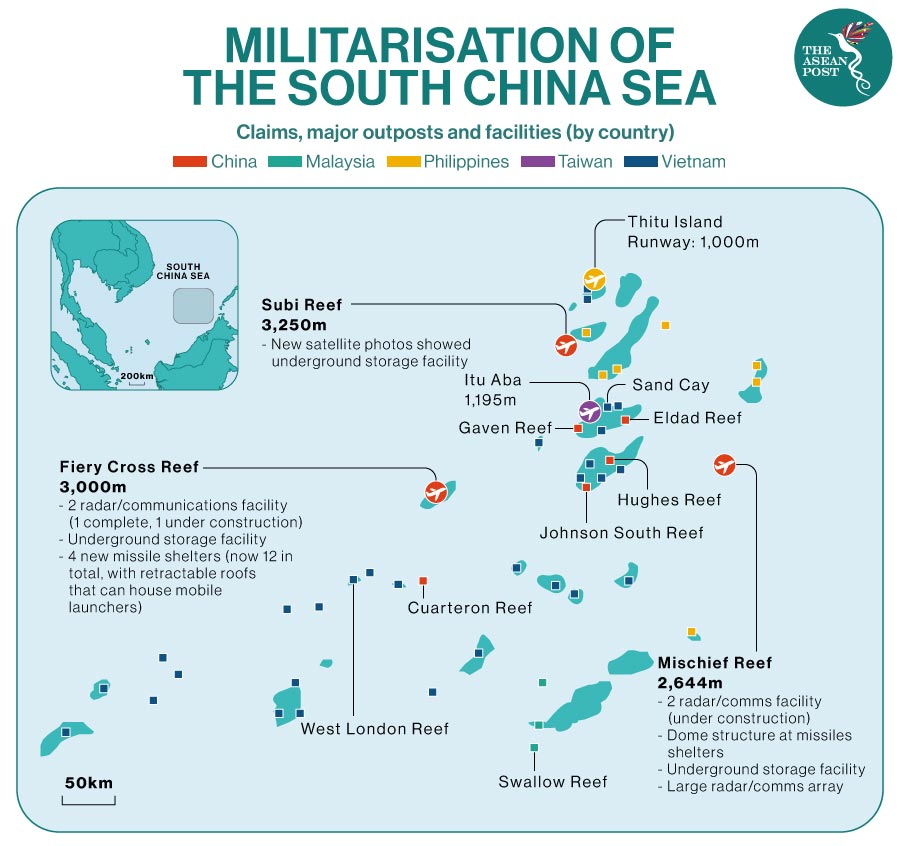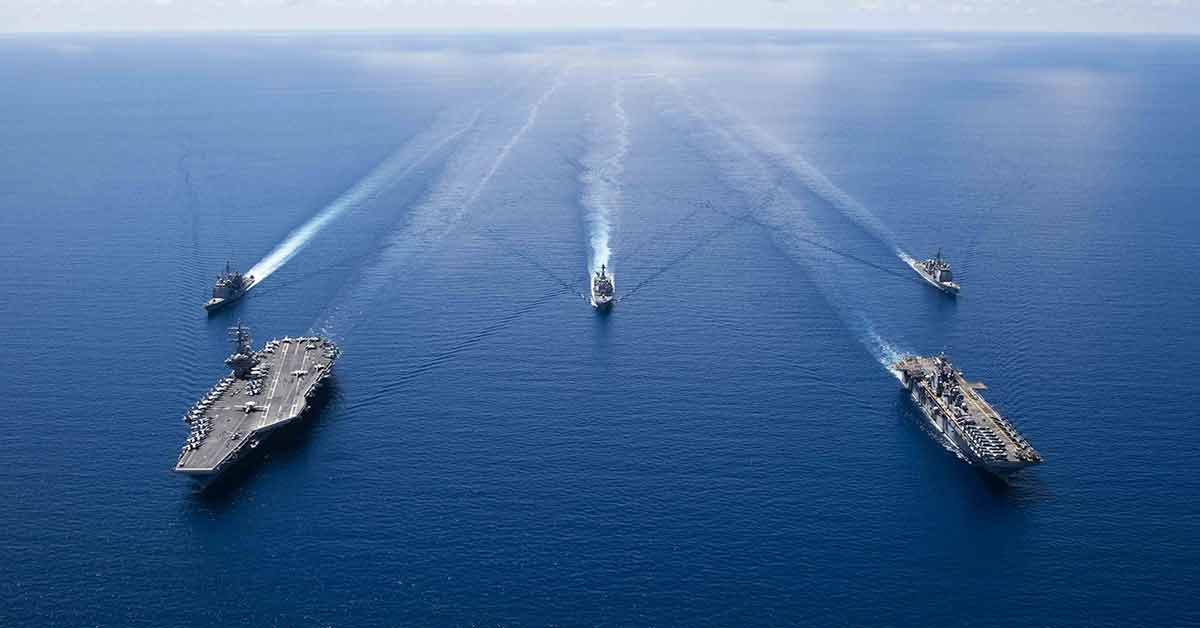As China continues its incursions into Malaysia’s Exclusive Economic Zone (EEZ) in the South China Sea, there is a need for the latter to display firm resolve by leaving no doubt that it is prepared to use force in the extreme of circumstances, given the recurrent blatant and flagrant violations of its territorial sovereignty and integrity by China.
At the same time, Malaysia must continue to pursue diplomatic recourse and channels – both bilateral as well as multilateral – to try to find an amicable, lasting and sustainable solution to the perennial issue.
Malaysia ought to maintain that real-world and existential tension of being both a friend and “enemy” of China (frenemy) in so far as the South China Sea is concerned is rooted in the preservation of national interests as the overriding factor.
To do that, the ASEAN member state should enhance its maritime and air defence security strategy and infrastructure. Piece-meal or ad hoc low-level responses is no longer adequate.
At the same time, it should increase the intensity of its diplomatic engagements, both overt and covert, set within the framework of the twin-track approaches – bilateral and multilateral.
According to the Auditor-General’s Report released on 14 July, China encroached into Malaysian waters 89 times between 2016 and 2019.
“The China Coast Guard (CCG) intruded into Malaysian waters 72 times while the remaining were by the People's Liberation Army Navy (PLAN). The reason for the CCG and PLAN's existence was to demonstrate China's presence in regard to its South China Sea claims, especially in the Beting Patinggi Ali (BPA) area [in Sarawak waters],” stated the report.
The report was released against the backdrop of the US’ hardened position against China’s presence in the South China Sea. Accompanying this has also been the public spat between the sitting Foreign Minister, Hishamuddin Hussein Onn with Anifah Aman who held the same post from 2009-2018.
In his prepared statement, Anifah said, “[if] Malaysia’s position on the South China Sea has not changed, what prevents the Minister from openly and categorically [registering] our displeasure on the activities of the Chinese survey vessel Haiyang Dizhi 8 and its flotilla in Malaysia’s maritime areas in April and May …?”
Apart from the BPA, the latest and farthest extent of Chinese intrusion so far into Malaysian waters is the area part of Malaysia’s extended continental shelf near the Luconia Shoals where a Chinese survey vessel was accompanied by the CCG and fishing militia from April to May this year.
Analysts are of the view Malaysia is now more dependent on China for trade as a result of the economic impact of COVID-19. They are also quick to point out that the Foreign Minister’s tactful and quiet diplomacy on the issue is not a tacit kowtowing or submission to China’s claim under undue pressure, economic or military.
Hishamuddin’s statement isn’t surprising. After all, it should be recalled he was the then Defence Minister who played a pivotal role in forging and fostering closer defence and security ties and cooperation with China when Najib Razak was the Prime Minister.
To this it could be added the statement by former diplomat and Putrajaya insider, Dennis Ignatius who was reported to have said that under Najib, “Wisma Putra even abandoned the usual practice of protesting every time an incursion occurred”.
Policy Gap
Be that as it may, there is a need to redress whatever policy gap there is in terms of both diplomacy and security which calls for their alignment and coordination.
Towards that end, left without any other realistic and viable option at least for now and in light of the lack of satisfactory outcomes of on-going bilateral as well as multilateral talks (twin-track approach), Malaysia should, among others:
• Suspend the practice of giving port access to Chinese warships;
• Call for China to withhold and restrain from sending its military assets to accompany civilian vessels in the EEZ of claimant countries;
• Implement the policy of monitoring and supervising civilian activities of Chinese vessels sent for survey, scientific, research and marine purposes;
• Stop all Chinese fishing activities; and
• Take steps to forge and foster stronger defence and security cooperation with selected ASEAN member-states (“core”) namely Singapore, Brunei, Indonesia, the Philippines and Vietnam to counter China’s presence.
At the same time, these member-states should ratify a common or joint-defence and security pact revolving around maritime and air warfare to signal their determination to stand up to the aggressive behaviour of China.

In other words, Malaysia has no choice but to depart from the practice of neutrality and appeasement which has not worked well in its favour so far; and
• Commence the practice of note verbal or third party note directly to China to state its objection and protest at incursions instead of through adjudicating bodies such as the United Nations (UN) Commission on the Limits of the Continental Shelf even if this risks diplomatic awkwardness and a fallout. This in addition to the practice of informally engaging the diplomatic counterparts of China.
• A new genre of international relations language should be employed tempered to be sure by tactful language, e.g. “Malaysia views the practical annexation of (…) by China as infringing on our sovereign right to resources within the EEZ”. This form of diplomatic escalation conditioned as it is by specific incidents should then be resolved accordingly under proposals for joint-development or temporary suspension of the relevant activities by both parties.
To reiterate, unfortunately, Malaysia has no choice but to beef up its position for the sake of its territorial sovereignty and integrity. The price of not doing so would perhaps, paradoxically, sow the seeds for a full-blown eruption in the South China Sea – as a major flashpoint serving one of the busiest international sea lanes – on a scale analogous to the COVID-19 pandemic.
Related Articles:

